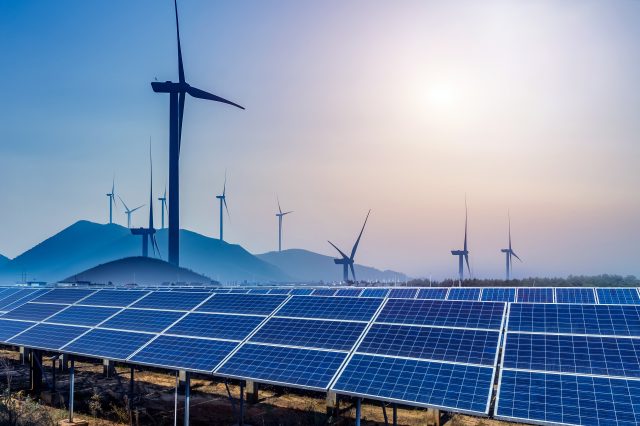
With climate chaos accelerating and extreme weather disasters happening nearly every day, it’s easy to become depressed. Biden’s Inflation Reduction Act was a first step, but it’s not enough.
Climate activists just won a significant victory in New York, which hasn’t attracted the attention it deserves. The state legislature passed the Build Public Renewables Act (BPRA), which authorizes the state’s publicly owned power provider — New York Power Authority (NYPA) — to determine each year whether New York is expected to meet its targets of achieving 70% renewable energy by 2030 and 100% by 2040. If the state isn’t on track, NYPA will step in to build enough renewable energy to fill the gap. Until now, the agency has been prohibited from building and owning utility-scale renewable generation projects.
Other renewable energy legislation hands over the responsibility — and resulting profits — of the green transition to private corporations.
The NYPA came out of the Great Depression. Lawrence Wang explains in Jacobin: “Founded in 1931 by then governor Franklin D. Roosevelt with the express purpose of ‘giving back to the people the waterpower which is theirs,’ the agency has become the country’s largest state-owned public utility, generating and transmitting up to a quarter of New York’s electricity, the vast majority of it created via hydropower. Between its extensive history in operating the most affordable and renewable utility system in the state as well as its ability to raise its own funds through AA-rated bonds, the NYPA is an ideal instrument for a renewable transition.”
While NYPA is publicly owned, the CEO and board are appointed by the governor. Democratic Governor Kathy Hochul supported the power authority owning and operating renewable energy projects, but disagreed with mandates that the power authority build to meet climate targets. In spite of that, Wang notes, the version of BPRA that ultimate passed “requires the NYPA to consult stakeholders like unions, community organizations, and climate and resiliency experts in a strategic planning process to determine where, when and how it builds new renewables, which it will then formalize into official plans.” Public hearings and public comment periods are required for each plan.
The victory was the result of a four-year battle by a coalition called Public Power NY. It began in 2019 with a campaign organized by the eco-socialist working group of the NYC Democratic Socialists of America (DSA) against a rate hike request by the private utility ConEd.
Ashley Dawson reports in The Nation that the coalition’s research into ConEd revealed a history of corruption and irresponsibility. ConEd was making a billion dollars per year in profits, charging the second-highest residential rates of any major utility in the nation.
“ConEd had received $350 million earlier in the decade to upgrade New York City’s ‘relay protection systems’ — networks of circuit breakers that contain electrical problems before they cause full-blown blackouts,” Dawson writes. “They failed to make these upgrades.” Then, in the summer of 2019, the city was hit with a series of blackouts and shutoffs. The chickens had come home to roost.
Dawson says the NYC DSA coalition succeeded against a powerful “toxic alliance of private energy companies, lobbyists, fossil fuel interests and machine politics.”
They fought establishment Democrats — the governor and leadership — as well as Republicans. Governor Hochul tried to water down BPRA.
“Elements from the original BPRA proposal rescued in negotiations include labor protections written by New York’s AFL-CIO that preserve existing collective bargaining agreements for NYPA workers, and prevailing wage provisions for all projects that apply to contractors and subcontractors,” Kate Arnoff reports in The New Republic. “Under the bill, as well, NYPA will dispense $25 million to the Department of Labor for training programs for the renewable energy workforce via a newly established Office of Just Transition.”
The coalition made public power an election issue. “DSA in particular led the charge to primary Democrats over their positions on it,” Arnoff writes. Activists also enlisted national elected officials — like DSA members Jamaal Bowman and Alexandria Ocasio-Cortez — to pressure Hochul and others.
Arnoff says the Inflation Reduction Act (IRA) passed by the U.S. Congress was also a “key factor” in BPRA’s victory: “Thanks to the IRA’s changes in how investment and production tax credits are structured, NYPA and other public power providers can now take advantage of expanded incentives for wind and solar development.”
Hopefully New York can be a model for other states.
This opinion does not necessarily reflect the views of Boulder Weekly.














